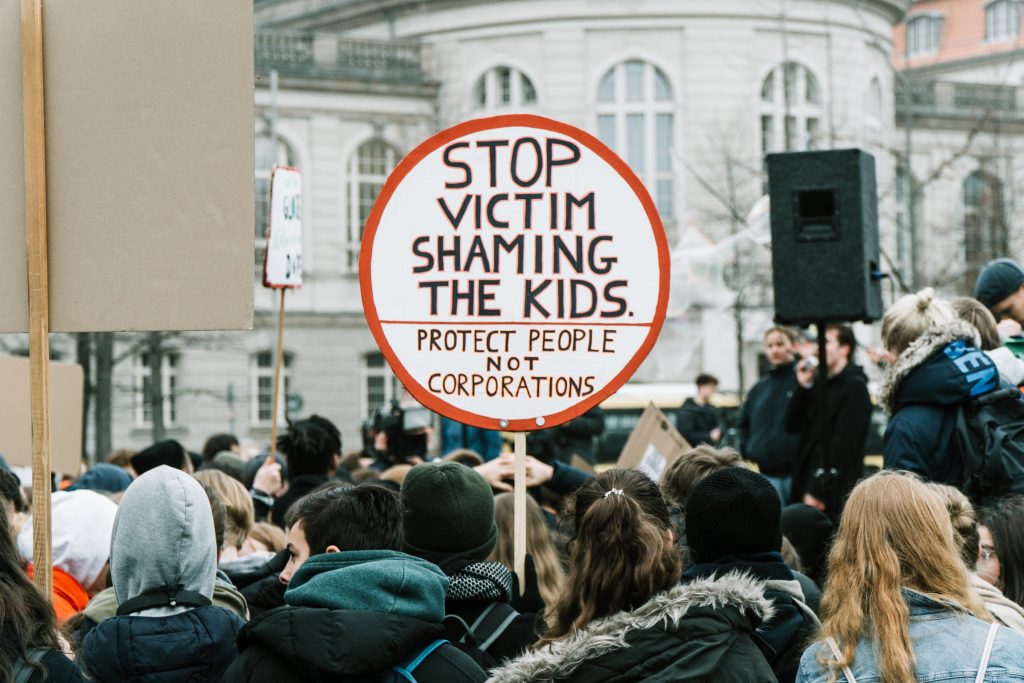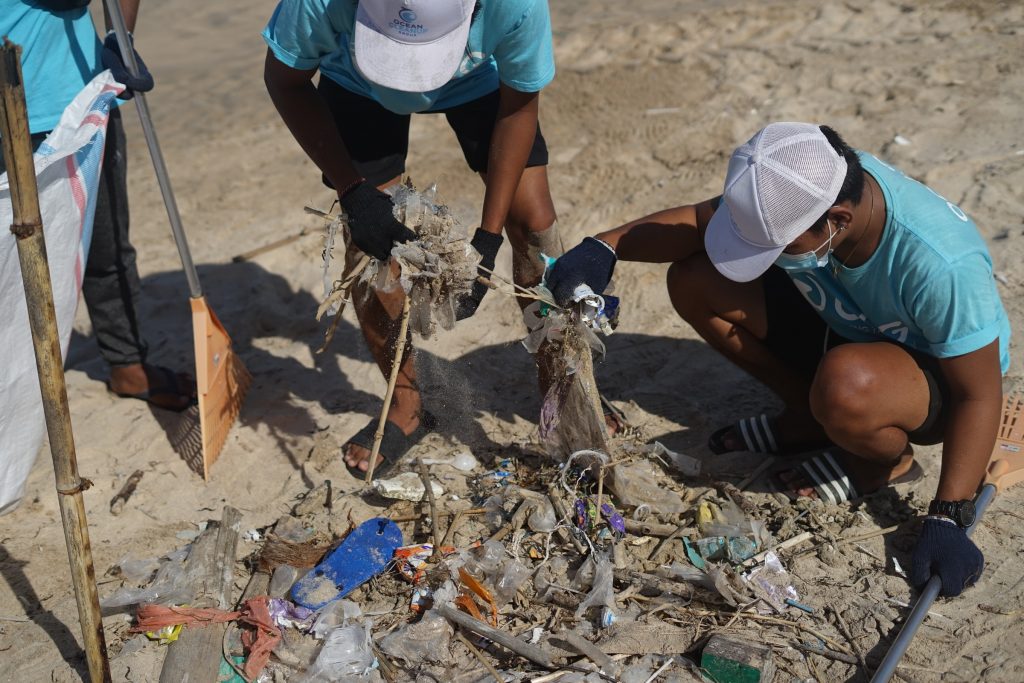Professional Resources
Journal Articles

Views of health professionals on climate change and health: a multinational survey study
Kotcher, J., Maibach, E., Miller, J., Campbell, E., Alqodmani, L., Maiero, M., & Wyns, A
The Lancet Planetary Health, 2021
Health professionals put forth their perceptions of the interconnectedness of climate change and health harm. Whilst health professionals reported feeling committed to engaging in climate change advocacy and education, a number of constraining barriers to action were also reported. The primary barriers identified were time restraints and a perceived lack of knowledge, with climate-focussed continuing professional development opportunities and resources recommended.

Ecological grief and anxiety: the start of a healthy response to climate change?
Cunsolo, A., Harper, S. L., Minor, K., Hayes, K., Williams, K. G., & Howard, C.
The Lancet Planetary Health, 2020
Emotional distress, anxiety, and grief are discussed as both reasonable, functional responses to climate-related losses, and as an ever-growing concern for health and mental health professionals. Six steps for health professionals are put forward with the aim of reducing climate distress whilst promoting resilience, energy and conviction through a lens of connection, healing, and health equity.

Terror Management Theory and mortality awareness: A missing link in climate response studies?
Wolfe, S. E. & Tubi, A.
Wiley Interdisciplinary Reviews, 2018
Terror Management Theory (TMT) is a framework for understanding psychological defences employed when a person consciously or unconsciously faces the prospect of their own unavoidable death. These defences can be counter-productive, which is notable when considering the apocalyptic narrative of the climate movement and media. An agenda is outlined to inform inquiry lines into TMT-informed climate change communication, collective action, and capacity for transformational responses.

Climate Dialectics in Psychotherapy: Holding Open the Space Between Abyss and Advance
Lewis, J., Haase, E., & Trope, A.
Psychodynamic Psychiatry, 2020
The vast and uncertain nature of climate change is irreconcilable at the individual level, resulting in climate distress that arises from holding impossibilities and conflicting truths – dialectics. The authors put forward a method for working with common climate dialectics. In this work, the aim is not to pathologise and reduce anxieties, but to contain and transform distress whilst allowing space for dialectics to be explored and transcended.

Results from an 18 country cross-sectional study examining experiences of nature for people with common mental health disorders
Tester-Jones, M., White, M. P., Elliott, L. R, Weinstein, N., Grellier, J., Economou, T, … Fleming, L. E.
Nature, Scientific Reports, 2020
Experiences with green/blue nature spaces is known to be intrinsically motivating, enjoyable, and a determinant for good mental health and wellbeing, benefits which have resulted in ‘prescription’ of nature experiences by health professionals. Findings suggest that higher perceived social pressure to visit nature results in higher distress and lowered motivation, particularly for people with common mental health conditions.. As a prescription approach can result in higher perceived pressure, any therapeutic plan that incorporates nature experiences must prioritise fostering intrinsic motivation.

Briefing Paper: Global Climate Change and Trauma
Augustinavicius, J. L., Lowe, S. R., Massazza, A., Hayes, K., Denckla, C., White, R. G., … Berry, H.
International Society for Traumatic Stress Studies, 2021
The inherent links between our physical and mental wellbeing and the environments in which we live present significant ramifications for our health as environments are harmed through climate change. Climate change impacts can leave communities collectively, but not equally vulnerable to post-trauma psychopathology. A range of stressors and protective factors and the potential for post-traumatic growth are explored as they relate to psychosocial adaptation to climate change.

Old ways for new days: Australian Indigenous peoples and climate change
Nursey-Bray, M., Palmer, R., Smith, T., & Rist, P.
Local Environment, 2019
Aboriginal and Torres Strait Islander people have inextricable links with Country, the lands and waters which are intertwined with identity and social and emotional wellbeing. With current and escalating climate impacts, Indigenous people in Australia are noticing the local effects these changes are having on traditional sites, culture, and knowledge. Many approaches to mitigate these harms to Country, culture, and wellbeing are explored, such as using localised language and context, incorporating humour, and prioritising Indigenous conceptualisations of “agency” over “vulnerability”.

Climate change and mental health: risks, impacts and priority actions
Hayes, K., Blashki, G., Wiseman, J., Burke, S., & Reifels, L.
International Journal of Mental Health Systems (2018)
While the relationship between climate change and its mental health consequences is complex and many-layered, this article discusses the challenges and opportunities of developing these understandings. Direct, indirect, and overarching consequences of climate change on mental health are discussed, and priority actions to act on these consequences are put forward as they pertain to policy and practice. The authors summarise transformative action opportunities as those which address inequities, demonstrate active hope, and mobilise communities.

A scoping review of interventions for the treatment of eco-anxiety
Baudon, P. & Jachens, L.
International Journal of Environmental Research and Public Health (2021)
Psychological approaches for mitigating eco-anxiety (a constellation of psychological impacts of climate change) are evaluated in this paper. Findings demonstrate that practitioners’ inner work and education is central to appropriate psychological intervention, as is encouraging connection with others and with nature whilst bolstering resilience and encouraging meaningful action. Approaches should be developed through a holistic and multi-pronged framework that is grief-informed.

Eco-anxiety: How thinking about climate change-related environmental decline is affecting our mental health
Usher, K., Durkin, J., & Bhullar, N.
International Journal of Mental Health Nursing (2019)
Climate change, and the effects on our natural environments, are negatively impacting our emotional and mental states. Health professionals are well positioned to reduce and respond to these detrimental psychological impacts in therapeutic work that develops active coping skills, self-efficacy, hope, and social connectedness, alongside collective actions that promote community resilience and broad scale climate action and advocacy.
Download Article

A department wellness initiative for coping with climate distress in 2030
Kremer, M. & Chiang, S.
Journal of Graduate Medical Education (2020)
In response to pronounced climate distress and burnout among medical residents and trainees, an intervention was developed within the department to promote wellness in climate engagement. The initiative encompasses small, meaningful steps toward a larger cultural shift. Outcomes include reduced climate impacts onsite and increases in wellbeing and a reduction in burnout within the department.

Climate change and psychology: Effects of rapid global warming on violence and aggression
Miles-Novelo, A. & Anderson, C. A.
Current Climate Change Reports (2019)
Effects of climate change are thought to contribute to increased violence and aggression in three ways: through rising temperatures; through physiological and psychological developmental impacts; and through effects of ecomigration. The authors discuss the importance of climate change mitigation and responsible preparation for the likelihood of increasing individual and intergroup conflict and violence.

The impact of climate change on mental health and emotional wellbeing: current evidence and implications for policy and practice
Lawrance, E., Thompson, R., Fontana, G., & Jennings, N.
Grantham Institute Briefing Paper No 36 (2021)
This report summarises the current evidence of overarching and specific climate change effects on mental health and wellbeing. Recommendations are put forth including efforts for effective collaboration, and a focus on incorporating mental health and social justice needs into climate mitigation and adaptation actions.

Toward a Taxonomy of Climate Emotions
Pihkala, P.
Frontiers in Climate (2022)
This article discusses the complexity and varied nature of our emotional relationships with the climate crisis. The author constructs a preliminary taxonomy of “eco-emotions”, detailed using the existing body of literature. The broad range of emotions detailed in the preliminary taxonomy are then discussed in consideration of their interrelated dynamics and their relation with mental health, pro-environmentalism, and morality.

A social–ecological perspective on climate anxiety in children and adolescents
Crandon, T. J., Scott, J., Charlson, F. J., & Thomas, H. J.
Nature Climate Change (2022)
The ways that children and adolescents understand and experience climate distress are influenced by a range of factors. These are analysed through a social-ecological systems approach, exploring interrelationships among individual factors, localised factors, societal influences, and the role of time. Protective and mitigating factors are also discussed, alongside considerations for interventions through policy, healthcare, and education.

Young people’s voices on climate anxiety, government betrayal and moral injury: a global phenomenon
Marks, E. et al.
Preprints with The Lancet (2021)
This global study surveyed 10,000 young people about their climate-related emotions, thoughts, and functional impacts, their beliefs and the emotional impact of government responses, and their experiences of being ignored or dismissed. Insights into young peoples’ experiences of climate change are discussed with consideration of relational, psychosocial, cultural, ethical, legal, and political factors.

The big issue: Breaking out of the climate bubble
Aspey, L.
Therapy Today (2021)
The climate bubble – “a collective psychic retreat from reality” – is discussed in the frames of psychological defenses that arise within the therapeutic processes as well as in the discipline of psychology. Deep knowing, deep caring, and the ethics of authentic engagement are considered for their roles in reflection and practice.

Eco-anxiety and environmental education
Pihkala, P.
Sustainability (2020)
Environmental education (referring to all educational and advocacy efforts pertaining to the environment) faces substantial challenges and possibilities from wide-ranging experiences of environmental anxieties and distress. Tasks and possibilities for practice are explored. Emotional engagement – for both educator and student – is central, encompassing self-reflection, validation, expression, and integration and resilience.

Thinking catastrophic thoughts: A traumatized sensibility on a hotter planet
Kassouf, S.
The American Journal of Psychoanalysis (2022)
Catastrophic thoughts, though often pathologised, may serve a useful purpose in developing abilities to make meaningful contact with internal and external realities. In the context of climate change and ecological degradation, this entails disrupting the dominant ‘anenvironmental culture’ in order to cultivate generative ways of thinking, knowing, and being with a more-than-human awareness.

“Alchemizing sorrow into deep determination”: Emotional reflexivity and climate change engagement
Hamilton, J.
Frontiers in Climate (2022)
In this analysis of emotional reflexivity and climate change engagement, the importance of emotional awareness and acknowledgement in climate change action is analysed. Expressing and shifting emotions is found to relate to emotional transformation and more balanced, sustained climate engagement.

Who feels climate anxiety?
Ray, S.
The Cairo Review of Global Affairs (Essays) (2021)
The variety of emotions and responses to climate change are explored with nuance in this essay. The term “climate anxiety” is considered for some of its meanings and limitations. Diversity of experiences of climate distress are discussed with consideration of culture, place, temporality, and experiences of power and privilege.

Ecocultural health and resilience in regional Australian communities: Mitigating the psychological distress of environmental crisis through community arts participation
Coyne, P.
Murdoch University Research Repository (2011)
In understanding experiences of environmental and climate distress, we must consider the interrelationships of place, culture, and community – that is, ecocultural health. Community arts participation is put forth as an intervention to mitigate psychological distress of psychoterratic conditions (such as solastalgia) whilst promoting wellbeing, sense of place, and community strength and resilience.

On becoming climate aware as a psychotherapist
Weintrobe, S.
Royal College of Psychiatrists Medical Psychotherapy Section annual conference (2021)
In this exploration of climate awareness in psychotherapy, the author navigates landscapes of psychic life in the climate reality. In considering climate awareness, the author analyses the climate bubble – a psychic retreat from climate reality, promoting disavowal and springing from a ‘culture of uncare’. Examining our own embeddedness in these systems and realities is put forth as essential practice for psychotherapists.

Therapists’ experience of climate change: A dialectic between personal and professional
Silva, J. F. B. & Coburn, J.
Counselling and Psychotherapy Research (2022)
Therapists’ experiences of climate change have implications for professional practice. The complexities of the therapists’ inner processes are explored, to shed light on ways of navigating these uncertainties, obligations, and experiences. Essential components of professional practice are discussed.

The lived experiences of place severing and decolonial resurgence in Vhembe District, South Africa
Barnwell, G., Makaulule, M., Stroud, L., Watson, M., & Dima, M.
Awry: Journal of Critical Psychology (2021)
Environmental degradation affects the social ecologies of local communities, resulting in experiences of ‘place severing’. These psychological experiences are analysed, with themes of dialogical disruptions, domains of distress (social and ancestral), and decolonial resurgence discussed for their roles in harm and healing for intergenerational communities.

Climate change on the couch: How psychotherapy can respond to the climate and ecological emergency - and why it should
Mowatt, B.
The AHPB Magazine for Self & Society (2022)
Psychotherapy’s role in clinical, professional, and structural systems of climate change is examined. Psychotherapists were interviewed for their personal experiences of climate change, and for climate change’s role in their professional therapeutic engagements. Themes arising from these interviews are discussed, with considerations including socio-cultural and political systems of power and oppression, climate change in therapy training, an ecosystemic perspective, and emotional engagement and social justice in the therapy room.

Community resilience for a 1.5 °C world
Fazey, I., Carmen, E., Chapin, F. S., III, Ross, H., Rao-Williams, J. Lyon, C., et al.
Current Opinion in Environmental Sustainability (2018)
The definition of resilience needs to be considered in the context of achieving a 1.5 degree world, as rapid change suggests there is unlikely to be a “return to normal”. Instead, community resilience should be considered as a forward-looking process of change that seeks to address a wide range of environmental and social issues. Authors propose 10 essentials to achieve community resilience.

The effect of extreme heat on mental health: Evidence from Australia
Ding, N., Berry, H., & O’Brien, L.
International Journal of Epidemiology (2015)
This paper explores the impact of extreme heat on four domains of individual mental wellbeing by matching data from the HILDA Survey with daily temperature data from the Australian Government Bureau of Meteorology. Results indicate heat negatively impacts men’s vitality and women’s emotional roles. The study suggests that women may have a greater vulnerability to the negative effect of extreme heat.

Nighttime temperature and human sleep loss in a changing climate
Obradovich, N., Migliorini, R., Mednick S., & Fowler, J.
Science Advances (2017)
Increases in night time temperatures amplify self-reported nights of insufficient sleep, particularly among lower-income and elderly respondents. Based on observed temperature-sleep relationships from the recent past, it is proposed that further climate change–induced night time warming may reduce the attainment of sufficient sleep, magnifying many of the physiological and psychological costs of sleep deprivation.

What lies beyond social capital? The role of social psychology in building community resilience to climate change
Ntontis, E., Drury, J., Amlôt, E., Rubin, G. & Williams, R
Traumatology (2019)
This paper addresses limitations of the well-established concept that social capital enhances community resilience, arguing that it fails to explain positive disaster behaviours that occur in communities without pre-existing ties. Authors explore social identity theory and the role of shared identification in community resilience, proposing that an emerging sense of togetherness and shared fate among people creates positive psychosocial effects.

The psychological impacts of the climate crisis: A call to action
Van Susteren, L.
BJPsych International (2018)
A report released by the White House in April 2016 summarises the links between various aspects of climate change and mental health decline. Extreme weather events may increase aggression, increased carbon dioxide may reduce cognitive function, and decreased air quality may increase symptoms of anxiety and depression.

Responding to the impacts of the climate crisis on children and youth
Sanson, A. V., Van Hoorn, J., & Burke, S.
Child Development Perspectives (2019)
Limited research examines how to best support young people in coping with climate change. A small amount of research suggests that compared with emotion-focused and problem-focused coping, meaning-focused coping strategies tend to create higher well-being and satisfaction with life, a sense of purpose and optimism, and more active engagement in environmental issues. More research needs to be conducted to better support young people within local contexts.

Eco-anxiety at university: Student experiences and academic perspectives on cultivating healthy emotional responses to the climate crisis
Kelly, A.
Independent Study Project (ISP) Collection (2017)
Eco-anxiety impacts the wellbeing of university students in many ways. Survey results indicate high levels of general stress and anxiety, high levels of stress and anxiety related to climate change and the state of the world, and a very high level of importance placed on nature connection in terms of mental health and psychological resilience.

Preparing mental health systems for climate crisis
Newnham, E A., Titov, N., & McEvoy, P.
The Lancet Planetary Health (2020)
The Australian bushfires of 2020 had considerable implications for mental health, distress, trauma and loss. Much of the population, assets, and infrastructure of Australia are located in disaster risk areas. Review of the emergency response indicates the scale of work still to be achieved in local and national efforts to prepare, mitigate, and adapt to climate change. Governments need to make long-term commitments to the planning and coordination of local and national mental health services to ensure effective and sustainable responses to future disasters.

